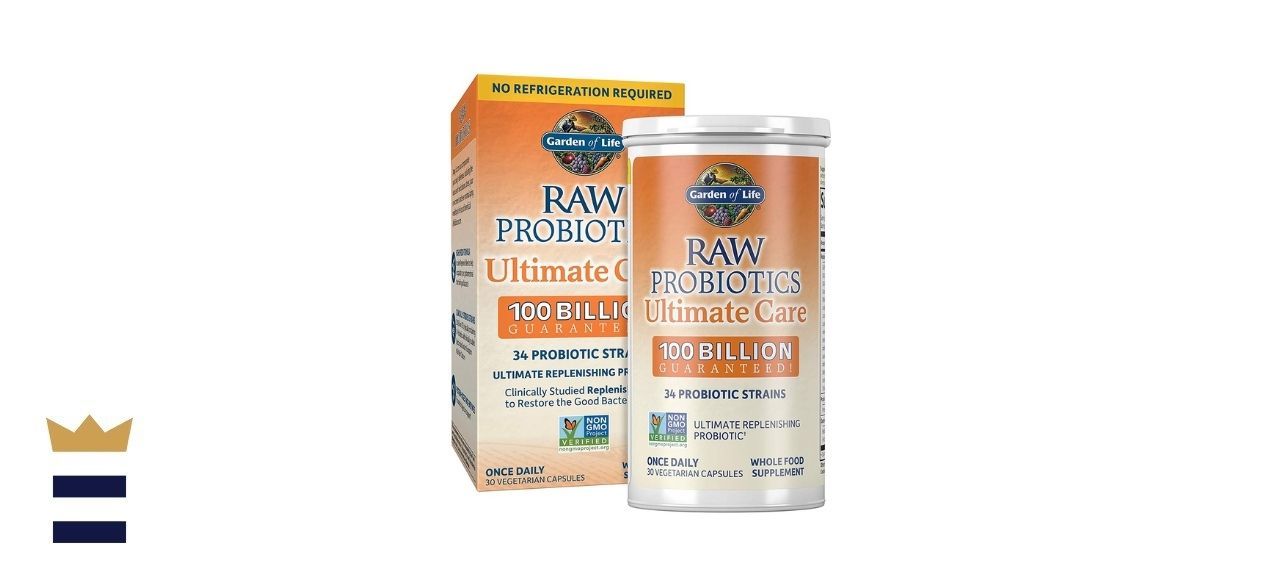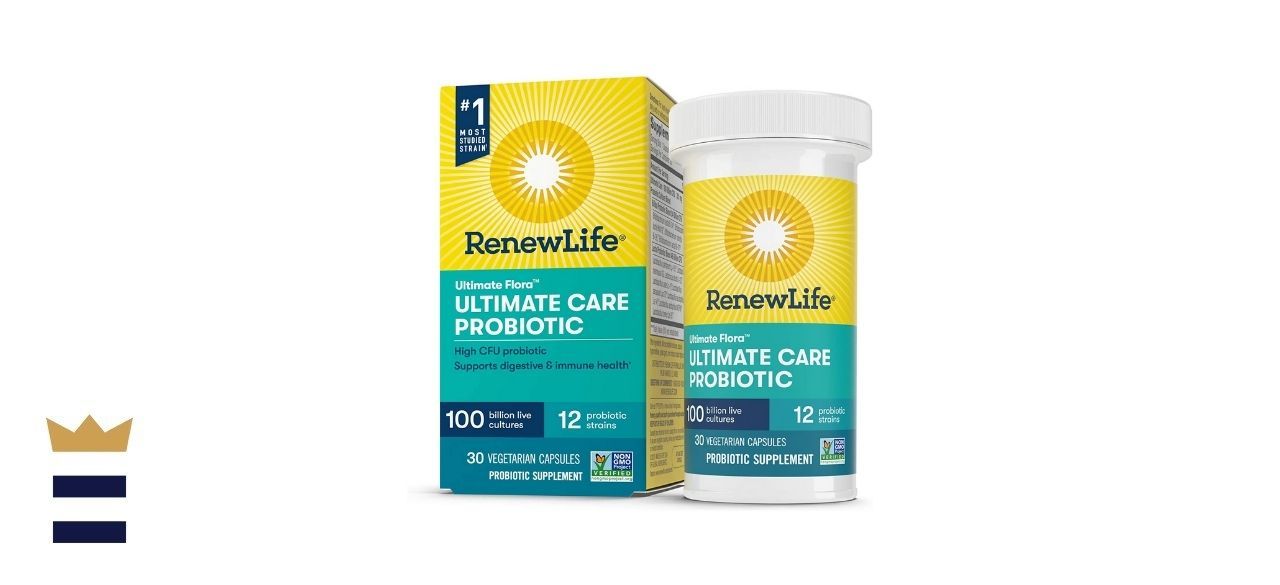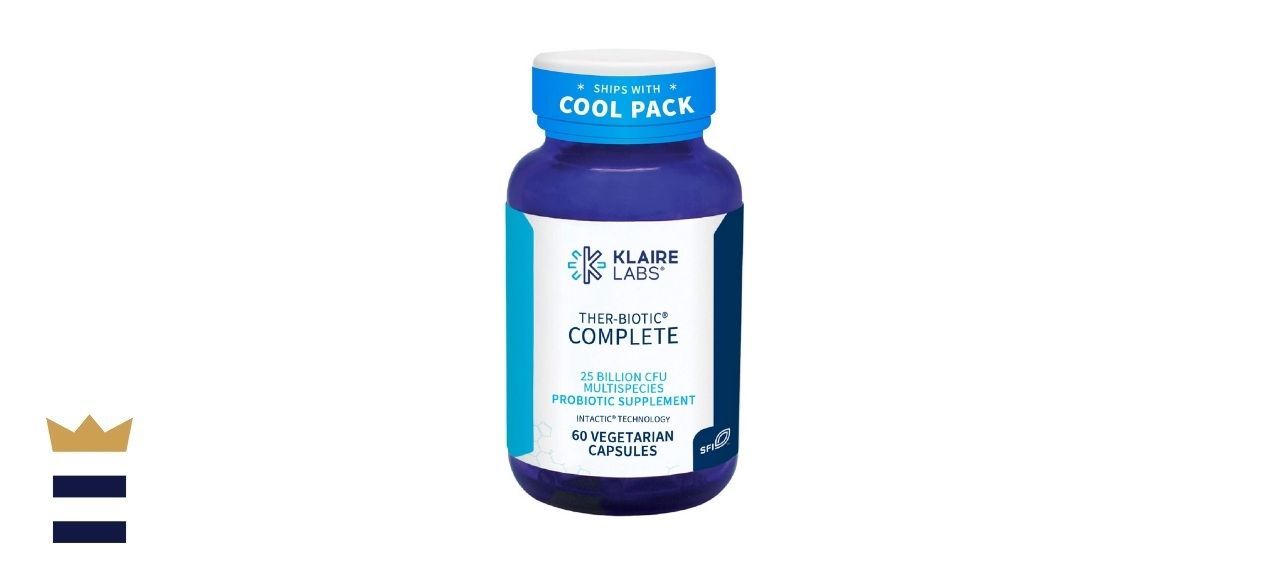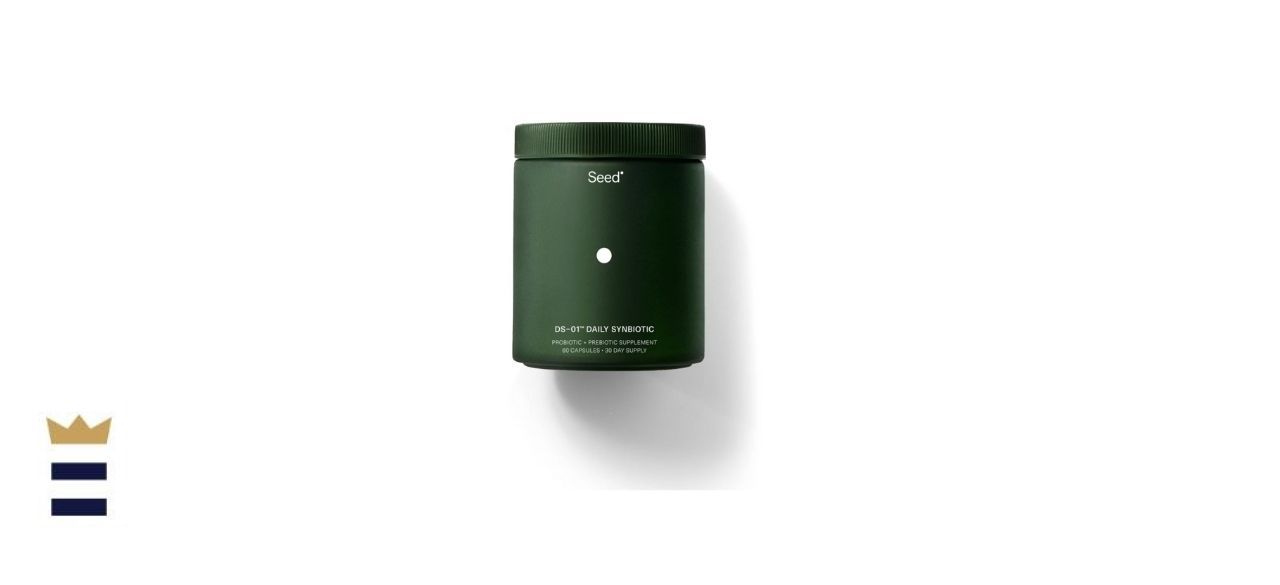Seed probiotic review
Your gut influences more functions than most people realize, including hormone balance, metabolism, digestive health and even helping keep skin clear. For a healthy gut, many people turn to probiotic supplements—living organisms that compete against unfriendly flora and restore order in the gut ecosystem. With a plethora of probiotics on the market, however, it’s challenging to know which supplements are making big promises they can’t live up to and which ones will deliver much-needed health benefits.
Seed claims to have the solution with their daily synbiotic probiotic supplement. Seed Probiotic’s proprietary formulation supports health with 24 clinically and scientifically studied, broad-spectrum strains of probiotics. In addition to supporting digestive health, gut barrier integrity and gut immune function, it promotes heart health and healthy skin. The packaging is eco-friendly.
To see whether Seed probiotic supplements can improve gut health, we put it to the test. Here’s what we found.
Testing the Seed probiotic
We asked two individuals to test Seed probiotics. One tester suffers from irritable bowel syndrome and frequently experiences stomach pain and bloating, while our other tester was simply looking to improve their overall system wellness. Our testers took Seed probiotic pills for a month, noting everything from changes in gut health to skin.
What is the Seed probiotic?
Seed DS-01 Daily Synbiotic is a broad-spectrum probiotic. It includes 53.6 billion active fluorescent units (AFU), which is the most advanced method to calculate a precise measurement of all viable cells.
The supplement consists of four distinct probiotic blends: digestive health, gut immunity and gut barrier integrity at 37.0 billion AFU; dermatological health at 3.3 billion AFU; cardiovascular health at 5.25 billion AFU; and micronutrient synthesis at 8.05 billion AFU. This Microbe-Systems Approach is unique to probiotic supplements and goes beyond digestive health.
Seed is also shelf-stable, meaning there’s no need to refrigerate.
How to use the Seed probiotic
Ordering Seed probiotic supplements is quick and straightforward. Since they only have one product, you don’t have to sift through pages of products to find the best fit. When you buy your first month of probiotic pills, you’re automatically subscribed and will continue to receive Seed probiotic supplements monthly. This feature is convenient and eliminates the need to remember to reorder. If you want to stop receiving the probiotic, it’s easy to cancel.
Sustainability is a vital part of Seed’s mission, and they practice this by using glass bottles and compostable or recyclable packaging. The first biodegradable algae paper box comes with a reusable glass pill bottle and a glass travel vial. The only plastic is in the caps, but they will be reused. Future deliveries come in a small compostable biofilm pouch that you pour into your glass bottle to refill.
Seed instructs users to take one pill a day on an empty stomach for the first week, increasing to two pills a day starting in the second week. Taking probiotics on an empty stomach is a helpful practice since it delivers good bacteria to your gut as quickly as possible. However, it’s important to note that some individuals get nauseous when taking pills on an empty stomach.
Key features of the Seed probiotic
One feature that separates Seed probiotics from other supplements is their 2-in-1 ViaCap construction that uses a prebiotic outer capsule and a probiotic inner capsule. This capsule-in-capsule design protects it from digestion so the probiotics enter your colon while still alive, which is when they are most effective. The capsules have no synthetic or chemical coating.
Many probiotics can be found in fermented foods like yogurt or kefir. However, Seed uses 24 clinically studied probiotic strains with a non-fermenting prebiotic compound isolated and purified from Indian pomegranate—many not found in yogurt, most supplements or fermented foods and beverages.
Seed is also one of the first to take a “microbe-systems approach” with strain-specific benefits beyond digestive health, including heart health, micronutrient synthesis, gut immune function, gut barrier integrity and skin health. It also includes strains that synthesize folate and increase production in the body.
As a bonus, Seed features a sustainable refill system, so it’s friendlier on the environment.
Other best probiotics
Here are a few other probiotics worth checking out.
This supplement delivers probiotic-created vitamins, minerals and prebiotics, as well as protein-digesting enzymes. They’re never heated to more than 115 degrees so they can maintain the maximum of live probiotic strains, nutrients and enzymes.
Sold at Amazon
Renew Life Ultimate Care Probiotic
This high-CFU probiotic supports digestive and immune health with 100 billion live cultures. The supplement contains a blend of 12 different strains.
Sold at Amazon
Klaire Labs Ther-Biotic Complete
Ther-Biotic probiotic species are dairy-free and grown on a plant-based medium. A shield protects against stomach acid and is designed to break down and release live microorganisms for optimal efficacy.
Sold at Amazon
Seed probiotic price
Seed probiotic supplements cost $49.99 per month. Shipping is free in the United States, and the product comes with a 30-day, risk-free guarantee.
Where is Seed probiotic sold?
Seed probiotics are available for purchase on their website.
Seed probiotic benefits
Overall, we were impressed with Seed probiotic supplements and felt they lived up to most of their claims. Seed suggests taking their probiotic pills on an empty stomach. One of our testers frequently experienced an upset stomach with previous supplements when taking them on an empty stomach, and was pleased not to have any side effects with Seed. The pill is an average size and has no discernible taste.
Within the first 48 hours, our tester with IBS noticed a reduction in stomach pain and bloating, almost eliminating the pain after the first month. They also experienced no severe IBS flare-ups throughout the month, which is a considerable improvement over other probiotics they’ve tried. Our other tester noticed their GI tract operating at a higher level.
One of our testers who suffers from acne noticed their skin starting to clear up at the end of the month of testing, with fewer breakouts popping up.
We also appreciated the travel tube, which made it convenient to bring our probiotics with us while traveling.
Seed probiotic drawbacks
We had an issue with one of our packages and found it difficult to connect with customer service. The only point of contact was email, and it took several days to get a reply.
While it was not our experience, some users had side effects when starting Seed probiotics, including nausea and stomach pain. Also, some users noticed little to no improvement in their gut health.
Should you get Seed probiotic?
Based on our experience, we feel Seed probiotic supplements live up to their claim of improving gut health. We appreciated the easy ordering process and sustainability mission, as well as a noticeably healthier gut and clearer skin. We recommend Seed probiotic supplements to anyone looking to improve their gut health.
Sign up here to receive the BestReviews weekly newsletter for useful advice on new products and noteworthy deals.
Breanna Richey writes for BestReviews. BestReviews has helped millions of consumers simplify their purchasing decisions, saving them time and money.
Copyright 2021 BestReviews, a Nexstar company. All rights reserved.





